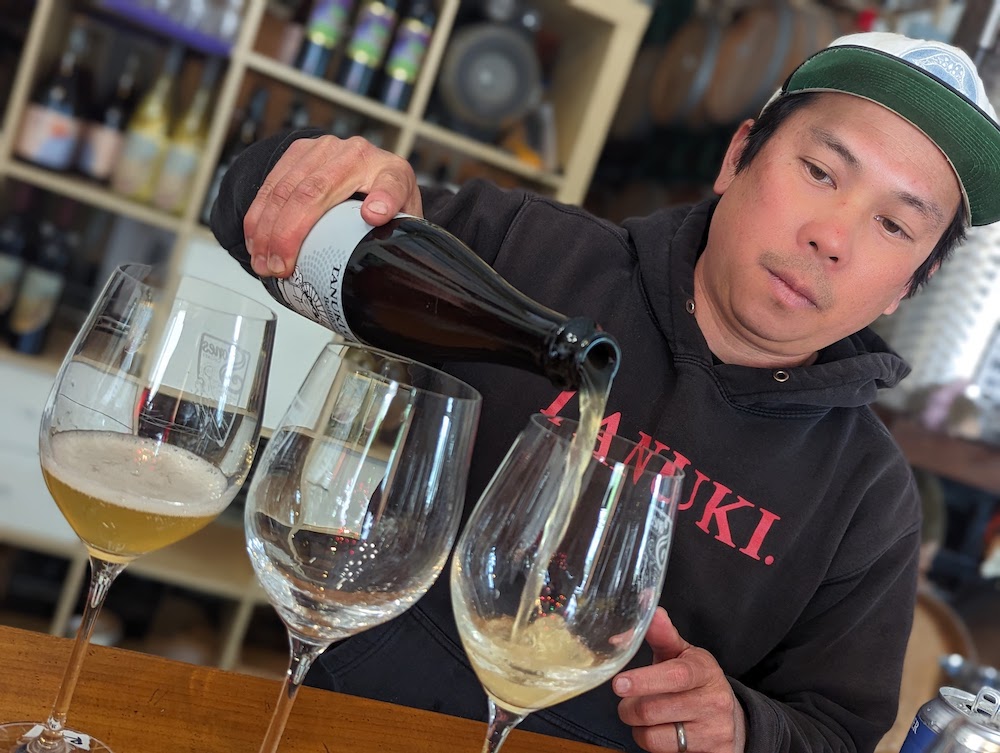
June 9, 2023 – A tanuki, it turns out, is many things.
A shape-shifter. A trouble-maker. A crafter of magic. A powerful symbol.
More scientifically, it’s a Japanese raccoon dog (!!) that’s understandably a YouTube and Instagram darling for its cuteness and the country’s long-standing cultural affection—even obsession—for it.
Across the Pacific in Santa Cruz, the tanuki takes on other aspects as the medicine animal and mascot of Tanuki Cider, capital T, which is a locally sown and grown adult cider operation that enjoys those semi-mystical qualities itself.
Here appears a rundown of how those elements express themselves, revealed across a spontaneous tasting at Sones Cellars, and talks with owner-operator Robby Honda, a fourth generation Japanese-American who met his English wife while they were both teaching in Japan and discovering the legend of tanuki.
Shape-shifting
For a small startup, Tanuki Cider crafts an impressive array of options. Those change constantly with the seasons, resulting in vintage-style ciders that vary with every year’s weather patterns, as does wine.
In the space of a half hour, we tried apple ciders that were single-varietal and six-strain creations, uncommon wine grape-cider co-ferments, ciders canned and corked, ciders from 15-year-old trees and 120-year-old trees.
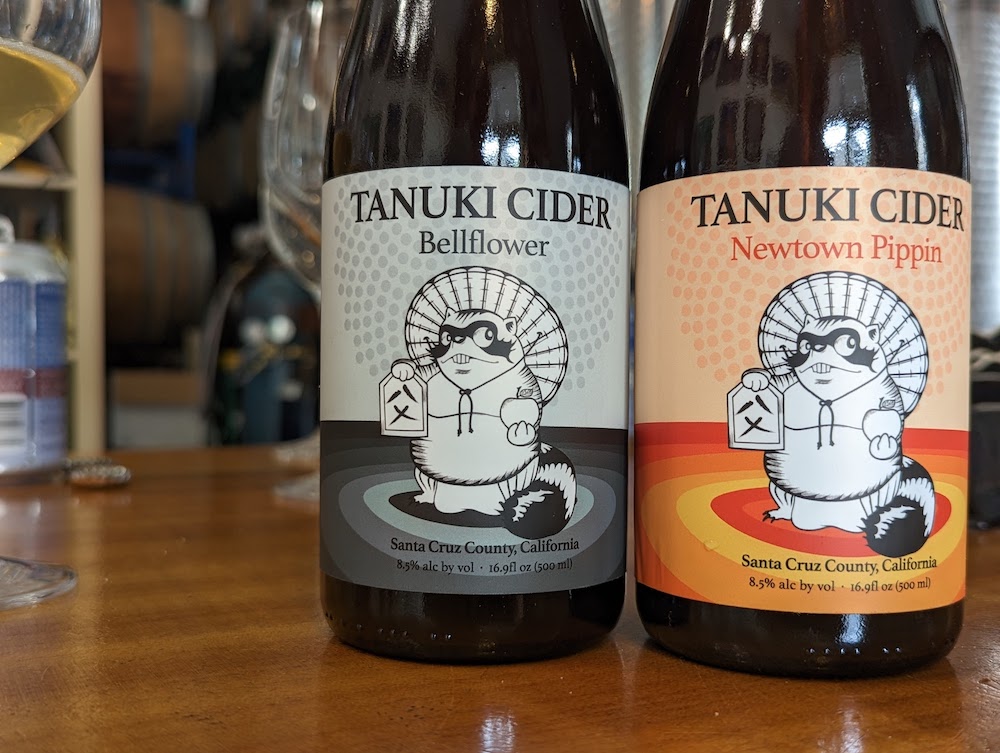
Each popped on the palate with unique personality. The Bellflower, made with heirloom yellow apples named for their bell-like shape, arrives surprisingly floral and creamy, with a playful whisper of banana. Another single varietal Newtown Pippin cider reveals an impressive lightness, effervescence and subtle earthiness.
A blend from Gravenstein, Mutsu, McIntosh, Newtown Pippin, Bellflower and Spitzenberg apples—fermented separately to allow for tinkering with terroir-driven combinations—benefits from sublime structure and balance Honda has honed through seven previous annual versions.
A couple of things do not shape shift, however. Across everything we tried, the dry character impressed and a good-funky farmhouse style persisted.
And hyper-local sourcing with family farms remains constant. (Luckily enough, the area is loaded with time-honored orchards.) The Bellflower apples, for instance, come from trees well over 100 years old at fifth generation-owned-and-operated Five Mile Orchards in Corralitos.
“All of our fruit comes from Santa Cruz County, and we’re not saying that’s better or worse,” Honda says. “But we’re trying to make a product close to home that represents where we live and play.”
Trouble-making
The easy drinking blends and single-varietals can get a careless imbiber in trouble. The art on the label and the storytelling on the website is playful. The resistance to anything sweet feels like a disruptive approach to the cider-making mainstream.
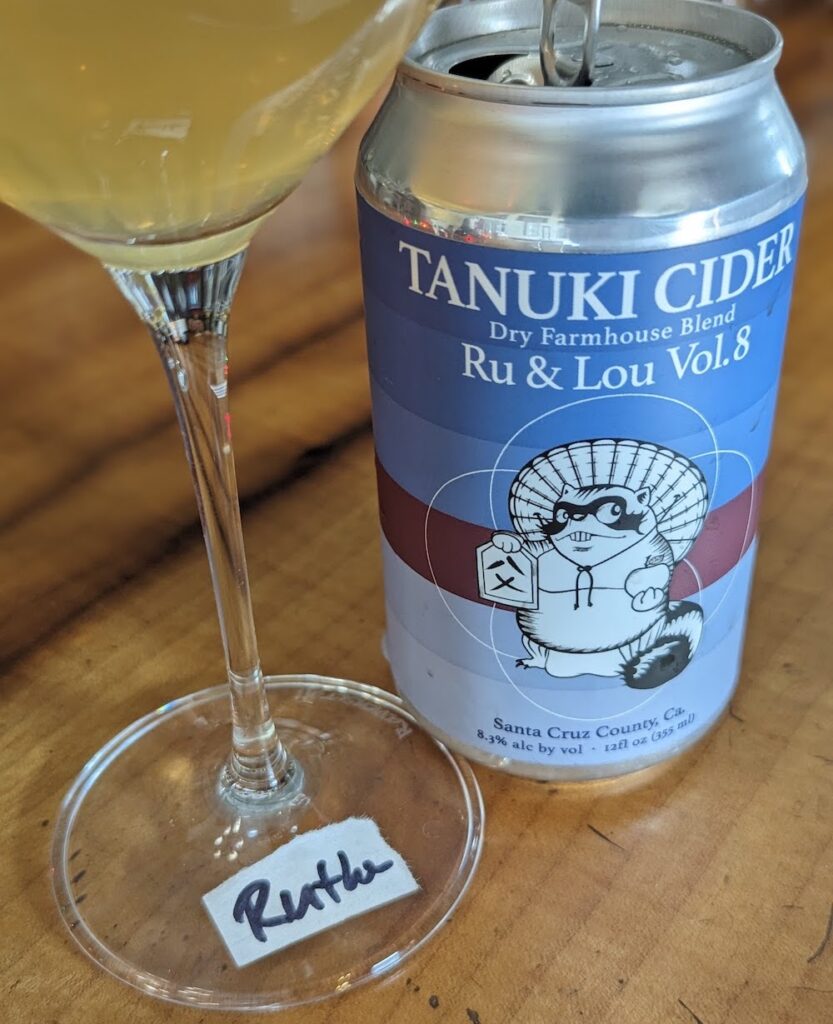
Then there are the mischievous themes that reside in the personality of blends like the annual Ru & Lou blend. That nods to polar opposites Rudolph Steiner (a Waldorf school pioneer and fan of biodynamics) and Louis Pasteur (a famed French scientist who pioneered pasteurization and vaccination).
That’s a nod to the fact Honda plays with dualities, using a combination of wild and cultivated yeasts, apples from ancient trees and youngsters, organic and conventional fruit, some dry-farmed, some irrigated.
“We contrast and combine opposing philosophies,” Honda says. “A lot of people are dogmatic about what’s right and wrong in the world of ciders, so for us it’s a fun way to reference that.”
The canned Ru & Lou blend works as Tanuki’s flagship product and best-seller, found along with other offerings at natural food stores, local markets and restaurants like Staff of Life, HOME, Bantam and Cafe Gabriella.
Magic-crafting
The uncanny Chenin Blanc-McIntosh apple combination emerges from grapes and apples grown two miles from each other, harvested within a week of each other, and fermented together.
Honda sells it under a combo Sones Cellars-Tanuki Cider label, in partnership with Michael Sones, one of the many collaborators who provide him with space to work on his ciders.
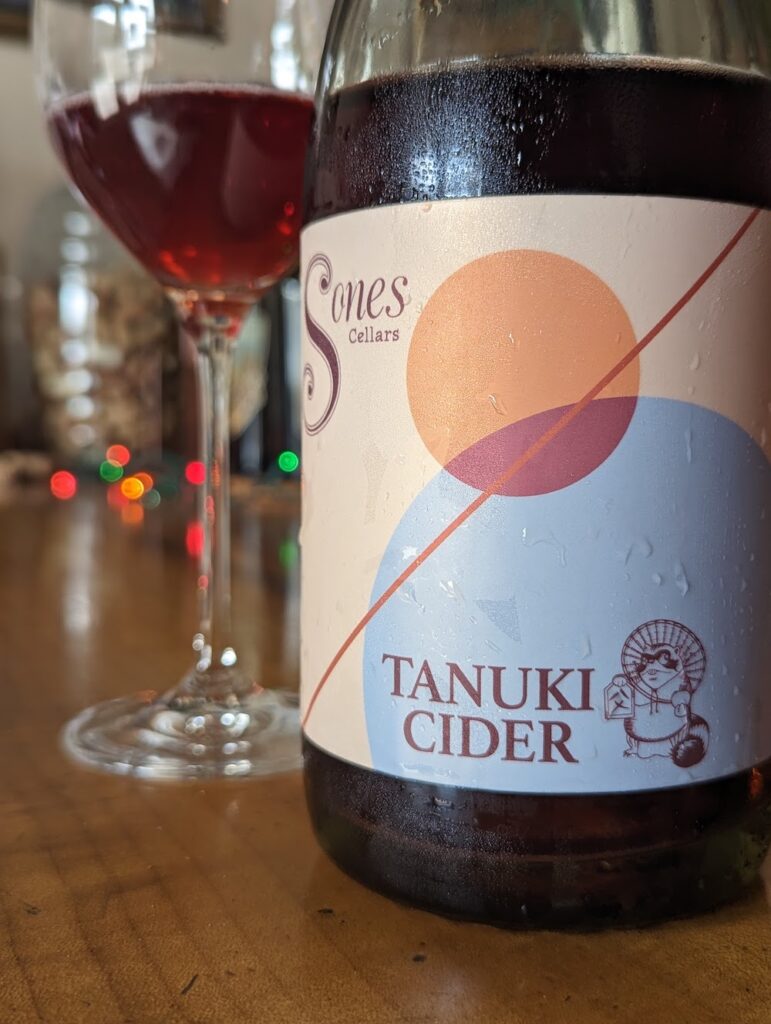
The result is bright and refreshing, and despite a 10% ABV (other Tanuki ciders linger around 8%), both mellow and approachable.
Like the tanuki itself, it is simultaneously familiar and new, a creature all its own with its own sort of magic.
Powerfully symbolic
There’s another key element at work with Tanuki that isn’t so much magical as it is spiritual and personal—though it is communicated with an otherworldly wink on the website.
That’s where a tale of a family of tanukis appears. The kids and their parents laugh and play amid soaring apple trees too tall for them to climb. So they wait for the fruit to fall, and sometimes eat apples that have started to ferment and even provide a little buzz.
The raccoon dogs don’t mind because hey, it’s a nice high and—more importantly—it makes it easier to communicate with ancestors.
That’s the key element: ancestry. Robby and his brother Brad grew up visiting the family orchard where their great grandfather planted the apple trees, and their grandma and mother were both born and raised.
But great gramps passed away before they could meet.
Robby’s young son, in turn, has never met Brad, who tragically died suddenly and mysteriously while asleep at age 33, days ahead of his nephew’s birth in 2016, and just before the labels he designed hit the market.
The family project with ample symbolism already at work—symbols of cultural heritage, of family history, of specific fruit selected thoughtfully—took on more meaning.
“It’s really important,” Robby says. “When we started this with Brad it was a family project symbolic of the Japanese-American spirit and four generations of my family here, but that changed when we lost Brad. He’s gone physically, but his spirit lives on as the cider helps us make friends and collaborate with the community. It’s his legacy.
“The cider is a way to stay connected.”
More at tanukicider.com.
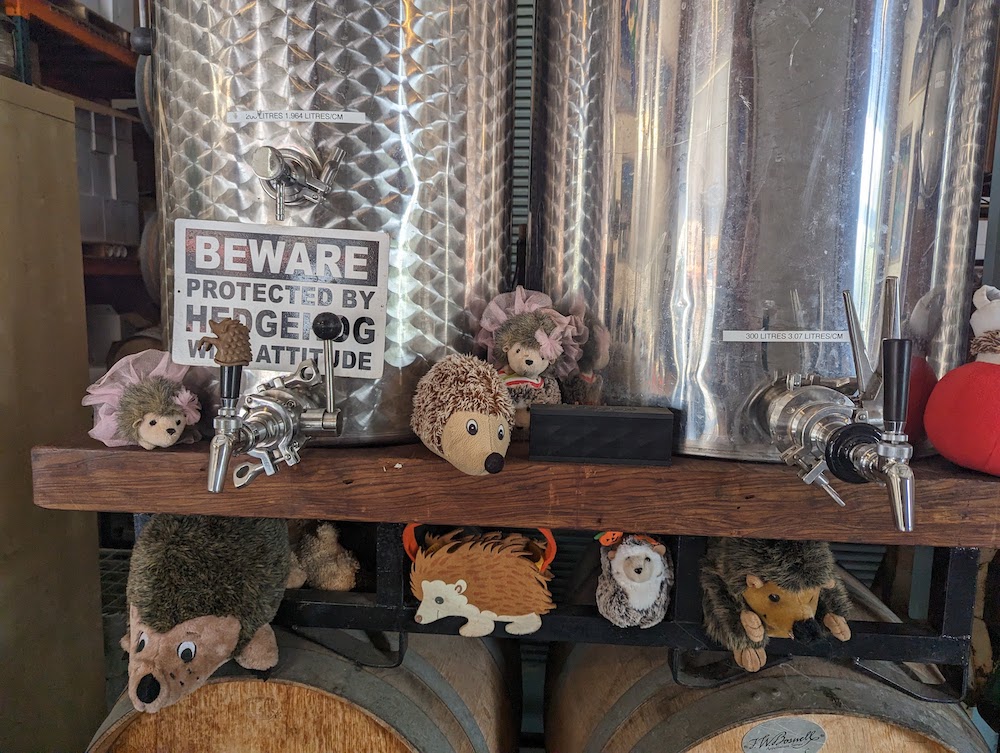
About the author
Mark C. Anderson, Edible Monterey Bay's managing editor, appears on "Friday Found Treasures" via KRML 94.7 every week, a little after 12pm noon. Reach him via mark@ediblemontereybay.com.
- Mark C. Andersonhttps://www.ediblemontereybay.com/author/markcanderson/
- Mark C. Andersonhttps://www.ediblemontereybay.com/author/markcanderson/
- Mark C. Andersonhttps://www.ediblemontereybay.com/author/markcanderson/
- Mark C. Andersonhttps://www.ediblemontereybay.com/author/markcanderson/



